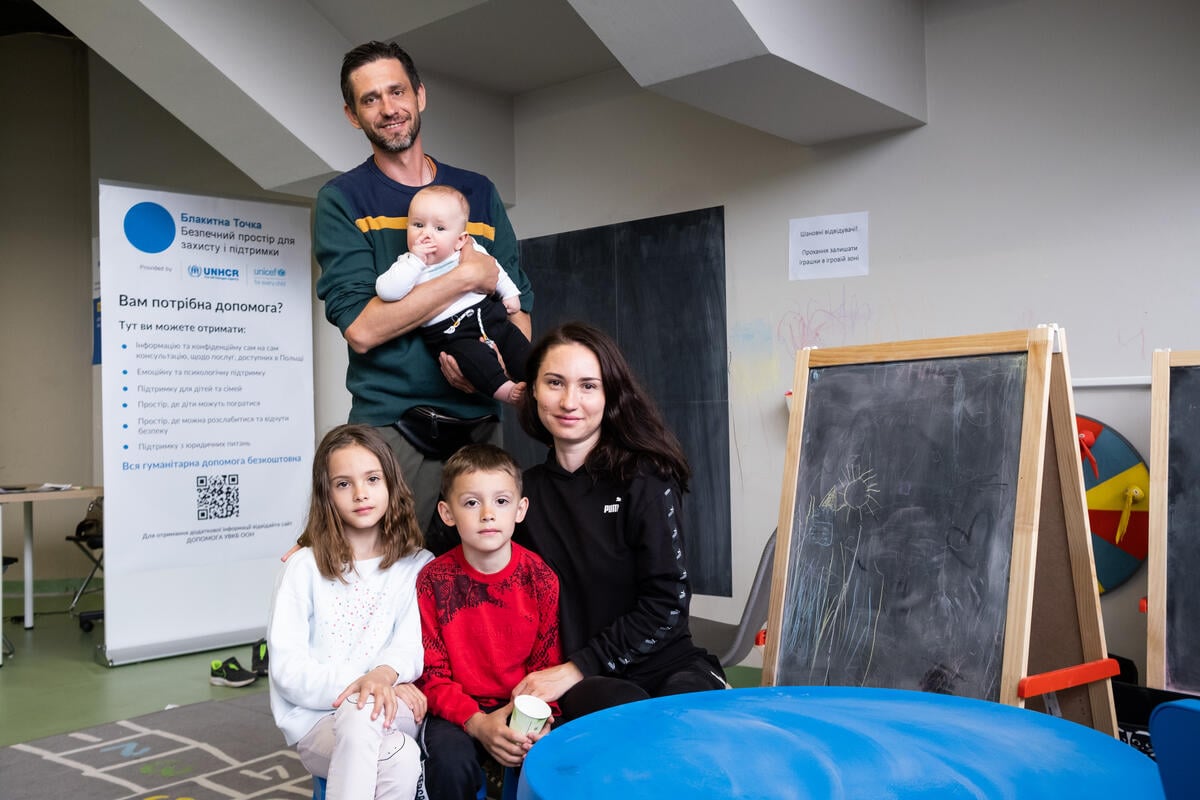Young asylum seekers and their teachers face a test in some European nations
Young asylum seekers and their teachers face a test in some European nations

WARSAW, Poland, September 12 (UNHCR) - Schools around Europe opened their doors to millions of children earlier this month, including one special group of students keen to get back into the classroom but wondering how they will cope.
These are children who have been forced to leave their homes and restart their education in an alien land and culture - like Murat, a 14-year-old Chechen asylum seeker preparing for the new academic year in Warsaw. "I am looking forward to returning to school," said the teenager, while adding: "I am also afraid. I know no one and I hardly speak Polish."
The year ahead will also be a challenge for teachers and school principals, especially in European countries whose education systems are not geared up to handle foreign children. Murat's new homeland, Poland, is a case in point.
"It is not the children that give us problems, but rules and regulations," said Jolanta Tyburcy, pedagogical director of a Warsaw primary school where 10 percent of the students are the children of Chechen asylum seekers.
Under Polish law, all children aged from six to 18 must attend school. But according to asylum legislation, children have to pass a Polish language test before they can be admitted to school. Principals and staff of refugee reception centres are working together to find a compromise solution.
Edita Gluchowska, who teaches Polish to new arrivals at the Ciolka Street reception centre in Warsaw, says young asylum seekers and refugees are "integration champions" because they mix and pick up languages much faster than their elders.
But she believes courses at the reception centres are not enough. "Children should start school as soon as possible to learn the language with Polish children," said Gluchowska, who works with school principals to ensure that courses offered at her centre are in line with the Polish curriculum.
Despite such efforts, a UNHCR survey last year found that up to 50 percent of child asylum seekers in Poland were not attending courses in the reception centres, let alone state schools. Some could not speak any Polish, others were offered places in classes below their age group and given little encouragement to attend, while yet more were hampered by lack of transport facilities.
Things have improved since the report came out. Jan Wegrzyn, head of the Repatriation and Aliens agency, told UNHCR last month that 90 percent of children in the reception centres would be enrolled in state schools this month.
In Hungary, the problems faced by young asylum seekers and refugees are more financial than linguistic. "Schoolbooks, stationery, school uniforms and sports kits cost as much as my husband earns in a whole month", said Yasmen, a mother of three who was otherwise very happy with the quality of education. "The kids are happy in school and they already speak good Hungarian," the refugee said.
Refugees and asylum seekers are entitled to a free education, but the state assistance mechanism is not yet in place and so UNHCR has agreed to cover the education expenses of 71 refugees and asylum seekers - including Yasmen's children - during the current academic year.
The government is also facing a new problem - stricter application of regulations aimed at stopping asylum seekers from moving from one member nation of the European Union (EU) to another, mean there is now more demand for places in secondary schools in countries of first asylum, like Hungary.
Again, UNHCR has helped out by paying for 15 teenagers to study at the Dob Utca school in Budapest. Under the pilot project, the youngsters will study a curriculum developed for foreign pupils. But Hungary will have to adapt its education system to handle more asylum seekers and refugees in the future.
Language is also an education issue in Slovakia, where young asylum seekers and refugees must attend a six-month course in the Slovak language. Reception centres provide learning assistance and schools offer additional, EU-funded lectures.
But Amra Saracevic, a social worker at the government's migration office, said she knew from personal experience that one of the most difficult things the young foreigners had to deal with in Slovak schools was the curiosity of the local kids. "When I first came to my new class as a refugee child, I felt like an animal in the zoo. Everybody was looking at me, everybody wanted to know about me and my history," recalled Saracevic, a former refugee from Bosnia.
But she agreed with Edita Gluchowska in Warsaw that it was children who played a major role in helping families get settled. "Children pick up language very fast, and they become the first members of the refugee family to be well integrated."
By Melita H. Sunjic in Warsaw, Poland









